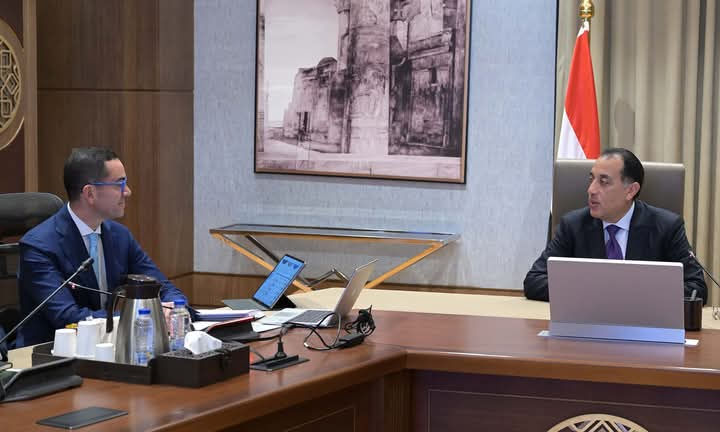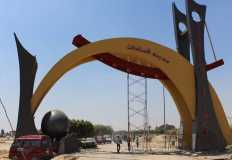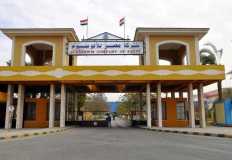
Prime Minister Dr. Moustafa Madbouly, met Monday, with Engineer Hassan El-Khatib, Minister of Investment and Foreign Trade, to discuss a number of the ministry’s work files.
The Prime Minister emphasized that this meeting reflects a commitment to ongoing efforts to stimulate the investment climate, develop foreign trade, and enhance the competitiveness of the Egyptian economy. Discussions focused on progress made in simplifying investment procedures and approvals, as well as the recently approved package of measures designed to streamline the release of imported goods, develop the customs system, and strengthen import and export controls.
During the meeting, El-Khatib presented Egypt's ranking in
the World Bank Group's annual "Ease of Doing Business" report, which
assesses the investment climate and ease of doing business across nations. The
Minister highlighted the report's significance as a strategic benchmark for
national reforms aimed at creating a competitive and attractive investment environment.
He noted that the report is a key resource for both domestic and international
investors when making investment decisions and evaluating governments' success
in fostering a favorable investment climate. A higher ranking in the report
enhances a country's attractiveness as a prime investment destination and
strengthens its regional and global competitiveness.
He also noted that the three main pillars of the report are:
the legislative and regulatory framework through the efficiency, stability, and
clarity of legislative and legal frameworks, the quality of public services
through digital transformation, integration and coordination between government
agencies in providing services, and strengthening the role of the private
sector in this context, and the operational efficiency including the efficiency
of service delivery in terms of facilitating procedures, time, and cost.
The Minister of Investment also presented the main elements
and axes that affect the ranking of countries in the Ease of Doing Business
report, which include: Business entry axis with a total of 64 sub-indicators, business
location axis with a total of 126 sub-indicators, public utilities services
axis with a total of 102 sub-indicators, labor axis with a total of 64
sub-indicators, financial services axis with a total of 37 sub-indicators, international
trade axis with a total of 162 sub-indicators, tax payment axis with a total of
36 sub-indicators, dispute settlement axis with a total of 69 sub-indicators, market
competition axis with a total of 174 sub-indicators, and business insolvency
axis with a total of 49 sub-indicators.
Minister El-Khatib reviewed the action plan for Egypt's
inclusion in the 2026 report. This includes analyzing the report's methodology,
calculating indicators, examining the questionnaire, and studying international
best practices. A matrix of proposed reforms, aligned with these best
practices, will be developed to improve Egypt's ranking. The plan also outlines
post-report actions: analyzing Egypt's ranking, reviewing best practices,
following up on reforms, and preparing another reform matrix for the 2027
report.
Engineer Hassan El-Khatib highlighted the importance of the National Committee for the Ease of Doing Business Report, which prepares Egypt for inclusion in the report. He emphasized the need to broaden the committee's scope to monitor indicator performance both before and after the report's release.





